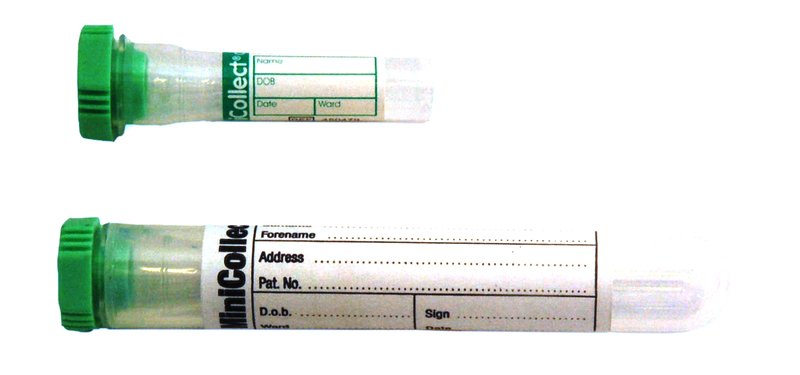Short Synacthen Test (SST)
Chemical Pathology
Notes
The short Synacthen test is a test of adrenal insufficiency which can be used as a screening procedure in the non-critically ill patient. The test is based on the measurement of serum cortisol before and after an injection of synthetic ACTH (also known as tetracosactrin).
This test is not recommended if pituitary problems are suspected. An endocrine referral is required in this situation as alternate stimulation tests may be necessary.
Contraindications and Precautions
- Ensure that you have read the contraindications and precautions as given in the Synacthen product information sheet. Having done so it is the responsibility of the investigating medical officer to decide whether it is safe to proceed with this investigation.
- Preparations should be made in advance to combat any anaphylactic reaction that may occur after the injection of Synacthen.
- This test gives unreliable results within 2 weeks of pituitary surgery.
Patient Preparation
The test does not require hospital admission but please note the contraindications and precautions. No dietary preparation is required. Current or recent steroid therapy may make result interpretation difficult.
Estrogen containing medications, including the contraceptive pill and hormone replacement therapy, should be stopped for six weeks prior to measuring serum cortisol. This is because estrogen induces cortisol binding globulin and leads to elevations in measured serum cortisol.
Further information on patient preparation is available by accessing Endobible
Please note: If this test is required in a child, please contact the paediatric endocrine team on ext 8476 to discuss.
Items required
- 1 x ampoule of Synacthen (250 ug) from the pharmacy
- Materials required for any possible anaphylactic reactions that may occur.
Sample requirements
- If patient on high dose biotin therapy (>5mg/day) collect samples at least 8 hours after the last dose
For adults, blood taken into 5mL gold top gel tubes (or rust top for the Acute Unit)

For children, blood taken into 3.5mL rust top gel tubes

For neonates, blood taken into 0.8mL minicollect lithium heparin tubes

Test Procedure
Please note: If this test is required in a child, please contact the paediatric endocrine team on ext 8476 to discuss.
- Take a baseline blood sample for cortisol - label with the patient's name, date of birth and hospital number or NHS number. Also record on the tube the date and actual clock time of the blood sample.
- Give the 250 ug of Synacthen by either intravenous (i.v.) or intramuscular (i.m.) injection (there is no difference in cortisol response between i.v. and i.m. administration).
- Take another blood sample for cortisol at 30 minutes post injection. Label with the patient's name, date of birth, hospital number or NHS number and the date and actual clock time the sample was taken.
- Send all samples to the laboratory with one completed request form giving clinical details, any relevant drugs (especially steroid treatment) and stating that a Synacthen test has been done.
Storage/transport
Send both blood samples to the laboratory at ambient temperature. If unavoidable can be refrigerated overnight.
Required information
Relevant clinical details including any steroid treatment.
Turnaround times
The assays are run throughout the day and night.
The in-lab turnaround time is less than 24 hours.
Result Interpretation
A cortisol of >420nmol/L at 30 minutes post Synacthen indicates an adequate adrenal response.
Failure to meet the above criteria indicates probable Addison's disease or very marked adrenal atrophy secondary to prolonged absence of ACTH stimulation. Further tests are required to differentiate between the two.
A normal response does not exclude ACTH deficiency which requires an endocrine referral if suspected.
Borderline cases are difficult to interpret and patients with low normal basal levels or minimal responses to Synacthen may still have adrenal insufficiency and should be considered for further investigations.
Difficulties in interpretation of the baseline serum cortisol and the response to Synacthen may be encountered when patients are on steroid therapy. Please note that prednisolone produces a significant positive interference in the cortisol assay used in this laboratory.
Please access the following link for more information when patients are on prednisolone.
http://www.pathology.leedsth.nhs.uk/dnn_bilm/Misc/Syntheticglucocorticoidsandcortisolassays.aspx
Further information
To learn more visit Lab Tests Online or access Endobible.